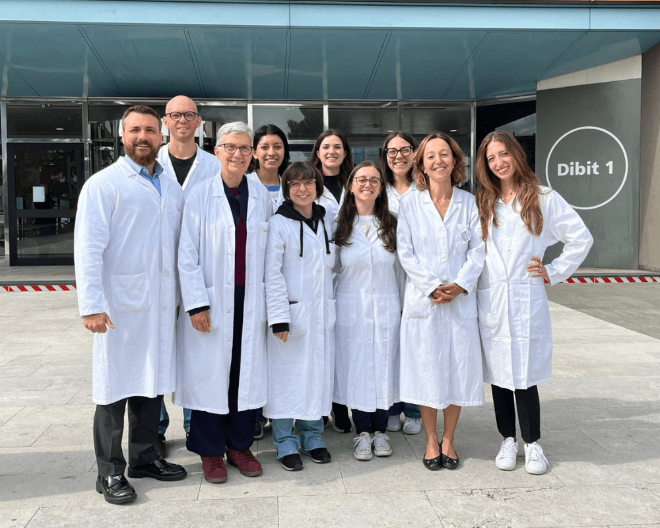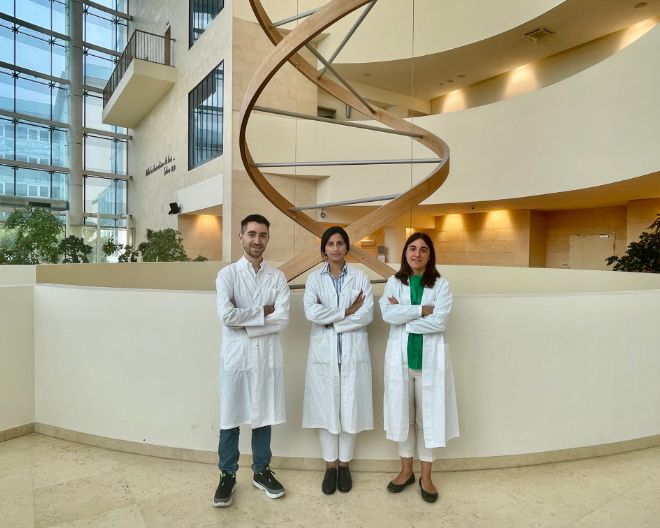UniSR and Citizen Science: our University commitment to participatory research

UniSR has been committed for years to promoting Citizen Science, a research methodology that, through the participation of non-professional scientists in research, combines Public Engagement and Open Science. The European Commission also strongly supports its adoption, as Citizen Science contributes to the excellence and effectiveness of European research and increases the trust that civil society places in science.
But what is Citizen Science?
Citizen science
/ˈsɪt.ɪ.zən ˌsaɪ.əns/ i.e.: participatory science
The voluntary participation of non-professional scientists in research and innovation at different stages of the process and at different levels of engagement, from shaping research agendas and policies, to gathering, processing and analysing data, and assessing the outcomes of research
UniSR is a centre of excellence in scientific research, where research is not just an academic activity but an experience of active and inclusive participation. Here, every discovery arises from collaboration and shared commitment, involving researchers, students, and the community in a dynamic process of exploration and innovation. This is where our dedication to Citizen Science originates.

Why take part in a Citizen Science project?
Participating in a citizen science project can be incredibly rewarding and impactful for you and society in many ways:
- Contribute to scientific research: your involvement helps gather essential data and observations, leading to new discoveries and advancements while broadening the scope of scientific research.
- Enhance your knowledge and skills: engaging in citizen science offers you a rich educational experience, deepening your understanding of scientific methods and fields, and helping you develop valuable new skills.
- Strengthen your sense of community: by participating, you will connect with scientists, researchers, and other enthusiasts, fostering a sense of community and forming valuable connections and friendships.
- Influence policies: your contributions can inform decisions that shape policies affecting your community and the wider world, giving you a voice in creating a better future.
- Enjoy and achieve: You’ll find the process both fun and fulfilling, providing you with a strong sense of accomplishment as you see the tangible impact of your efforts.

Our first Citizen Science project
Here we introduce the first Citizen Science project by UniSR and IRCCS Ospedale San Raffaele, conceived and co-created thanks to the collaboration between researchers of the Diabetes Research Institute (DRI) and Diabete Italia, the network that gathers associations representing patients with diabetes (type 1, pediatric type 1, and type 2) as well as other key stakeholders in the diabetes community.
The primary goal of the DICCI project (Diabetes Cells Citizens, in Italian DICCI means “tell us”) is to actively involve people affected by type 1 diabetes and their caregivers in collecting data and opinions about cellular therapies.
If you are one of them, participate in the survey (in Italian) and let us know your thoughts!
Despite the promising possibilities offered by cellular therapy in treating type 1 diabetes, there are still some uncertainties and open questions regarding its effectiveness, safety, and ethics. To address these challenges effectively, it is essential to understand the needs, preferences, and concerns of the patient and caregiver community. Participating in the DICCI project is easy: simply complete a short anonymous questionnaire that takes only 10 minutes. The survey results will then be publicly communicated and will provide the foundation for some future decisions in the field of cellular therapy for type 1 diabetes. Through reposts and updates, we will keep the community informed about the project’s progress. The study results will be published on the Diabetes Research Institute and Diabete Italia websites.
You might be interested in

The EMA approves lecanemab

Juvenile Parkinson's disease: at San Raffaele created a new model to study its development

Researchers Franco, Ferrari and Omer awarded three ERC Starting Grants

